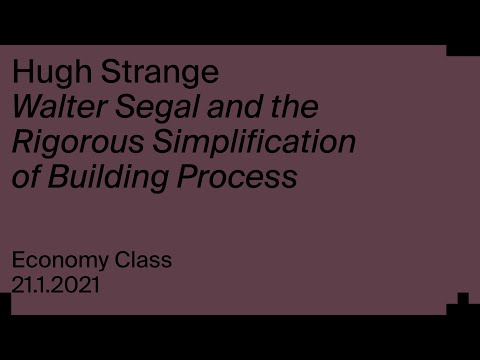
During construction of his own house in London in 1963, the Berlin-born architect Walter Segal built a temporary structure within the garden space in which he and his family would live during the main works. The construction of this interim dwelling established a number of principles he was to pursue for the remainder of his career, later characterised as the ‘Segal Method’. The rationale of the temporary house was centred on the use of readily available, mass-produced and dimensionally coordinated materials. These off-the-shelf elements were employed with minimal on-site alteration, and fitted, with dry jointing, into a timber post and beam structure that was dimensioned according to standard insulation slabs and plywood sheets.
The omission of wet trades, and the reduction in secondary alteration, transformed the nature of on-site work towards a process of assembly. In the following decade the method was developed and refined in a number of private house commissions, always with a view towards rigorous simplification of process. Segal was eventually able to apply his method of building to a series of self-build houses on council owned land within the London Borough of Lewisham; the radical simplicity of his approach allowing unskilled residents to construct their own houses with their own hands.
Hugh Strange is principal at London-based firm, Hugh Strange Architects. In parallel with his practice he is currently undertaking a PhD at the Oslo School of Architecture and Design.
This talk formed part of Economy Class, a one-day symposium concerned with the various economies at play around and within architecture, which was curated by Richard Hall.
ABOUT THE ARCHITECTURE FOUNDATION
For over 20 years, the Architecture Foundation has brought together professionals from across the built environment to discuss and act on issues related to design and the built environment. With a renewed focus on the city and the critical intersection of architecture and politics, the Architecture Foundation works to effect meaningful change on policy and practice. http://www.architecturefoundation.org.uk
If you would like to support the work of The Architecture Foundation, please consider donating or becoming a member at http://architecturefoundation.nationbuilder.com